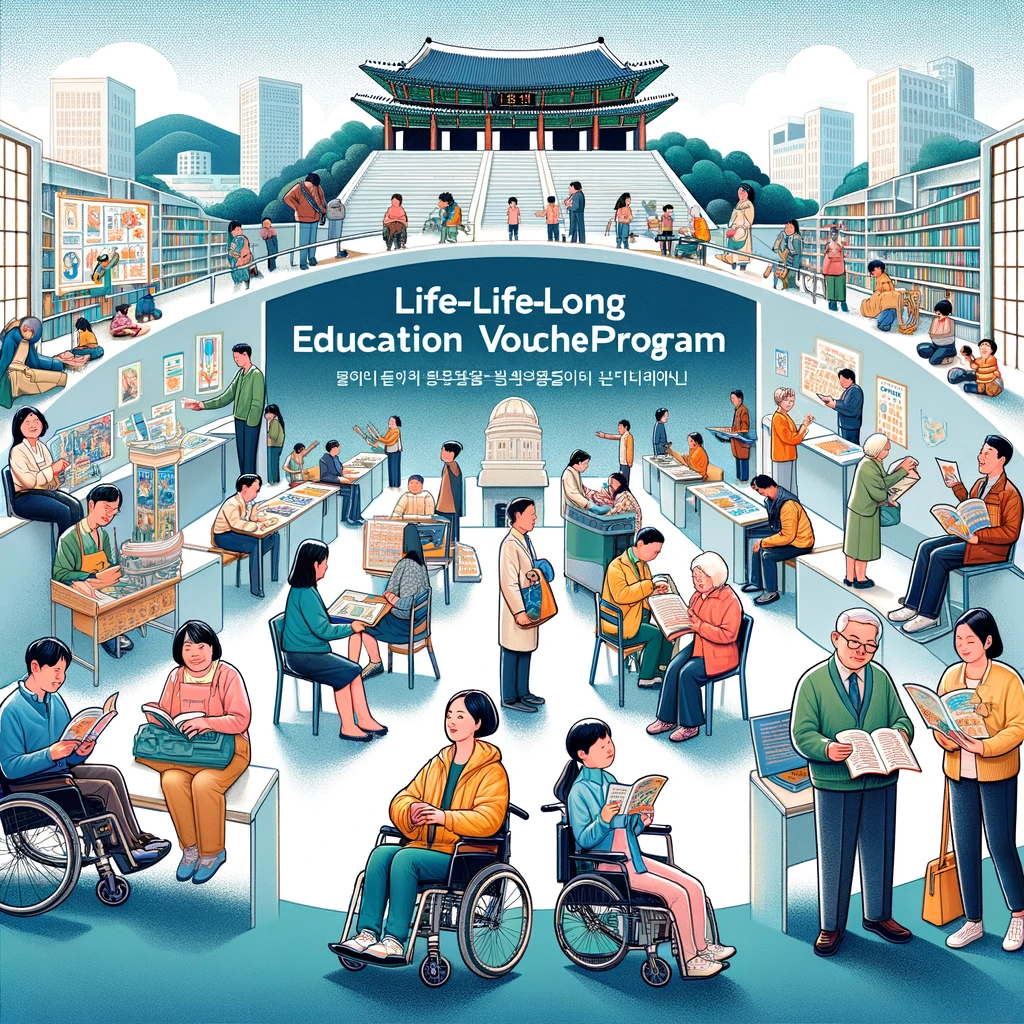Introduction
Education is a lifelong journey that shapes our identity, our understanding of the world, and our place within it. For disabled individuals, access to education can be fraught with obstacles, from physical barriers to the lack of specialized resources. Recognizing this, the South Korean government has launched an innovative program to support the educational aspirations of its disabled citizens.
What is the Lifelong Education Voucher Program?
The Lifelong Education Voucher Program is a government initiative that provides financial assistance to disabled individuals for their educational pursuits. This voucher can be used for course fees and educational materials at over 2,900 participating lifelong education institutions across the country. It’s a step towards inclusivity, ensuring that education is accessible to all.
Eligibility and Application Process
To be eligible, applicants must be registered disabled individuals aged 19 and above. The selection process involves local governments and prioritizes those in financial need, ensuring that the program benefits those who need it most.
The Impact of Financial Support on Education
Financial barriers often prevent disabled individuals from pursuing education. By removing this obstacle, the Lifelong Education Voucher Program opens up a world of opportunities, allowing beneficiaries to enhance their skills, pursue new interests, and even advance their careers.
Utilizing the Voucher: Dos and Don’ts
Recipients must use the voucher for its intended purpose: education. It cannot be spent on unrelated materials or electronics. This ensures that the funds directly contribute to the recipient’s educational growth.
Additional Support for High-Achieving Learners
Recognizing the importance of nurturing talent, the program offers additional funding for high-achieving learners, doubling their annual support to a maximum of 700,000 won. This encourages continuous learning and excellence.
Budget and Funding
The program’s budget has increased thanks to local government contributions, allowing for more beneficiaries than in previous years. This expansion reflects the government’s commitment to education for disabled individuals.
Selecting Participating Municipalities
Municipalities are selected through a competitive process that considers their ability to effectively implement the program. This ensures that the program is managed efficiently and reaches its intended audience.
Priority for the Economically Disadvantaged
Special consideration is given to disabled individuals facing financial hardships, ensuring that the program supports those in greatest need.
How to Apply
Applications are made through the “Government 24” website, with detailed instructions provided by local municipalities. This streamlined process makes it easier for eligible individuals to access the support they need.
Conclusion
The Lifelong Education Voucher Program is more than just financial assistance; it’s a lifeline that empowers disabled individuals to pursue their educational goals and achieve their full potential. By investing in education, South Korea is fostering a more inclusive society where everyone has the opportunity to learn and grow.
FAQs
- Who is eligible for the Lifelong Education Voucher Program?
Registered disabled individuals aged 19 and above in South Korea are eligible. - How much financial support does the program provide?
Each selected individual receives up to 350,000 won annually, with the possibility of additional funding for high achievers. - Where can the voucher be used?
The voucher can be used at over 2,900 lifelong education institutions across South Korea. - Can the voucher be used to purchase electronic devices?
No, the voucher is strictly for educational purposes, including course fees and materials. - How can I apply for the program?
Applications can be submitted through the “Government 24” website during the designated application period, following guidance from local municipalities.

